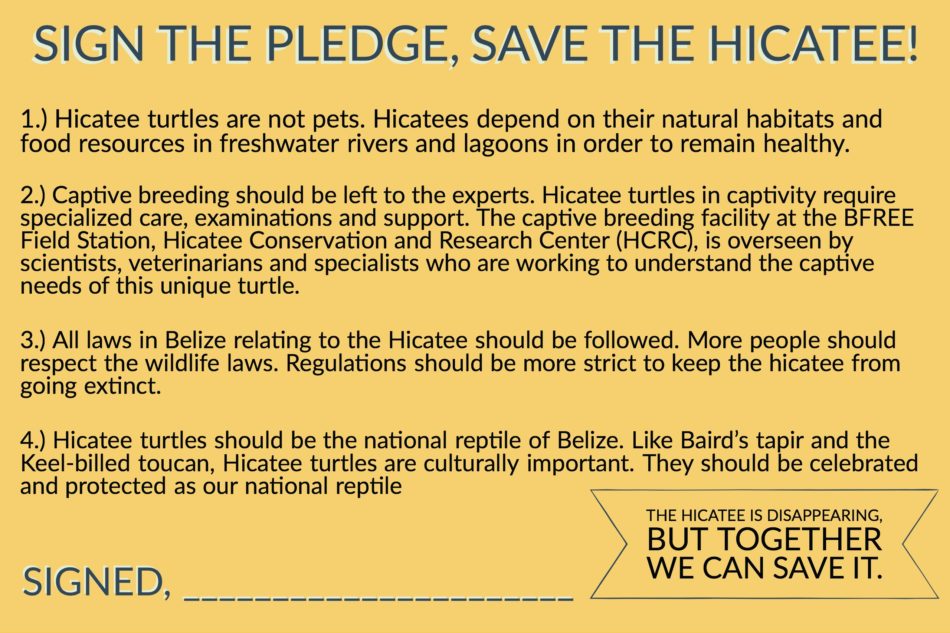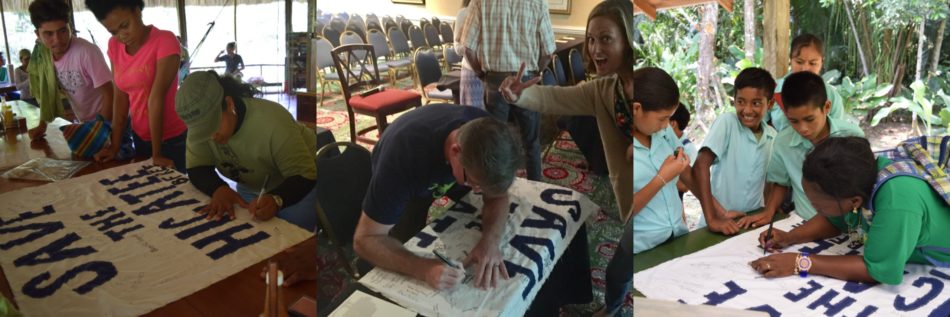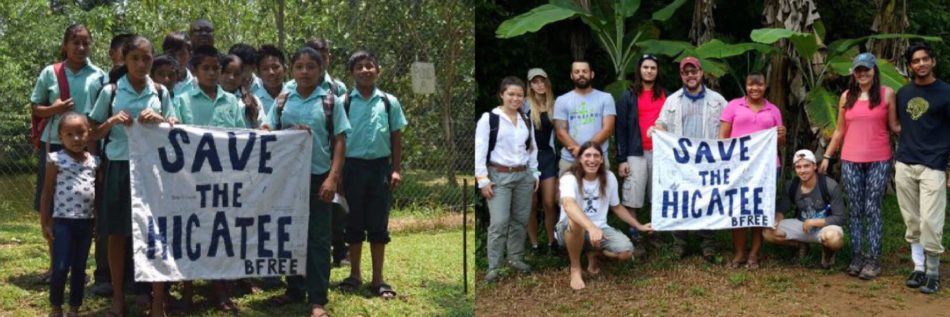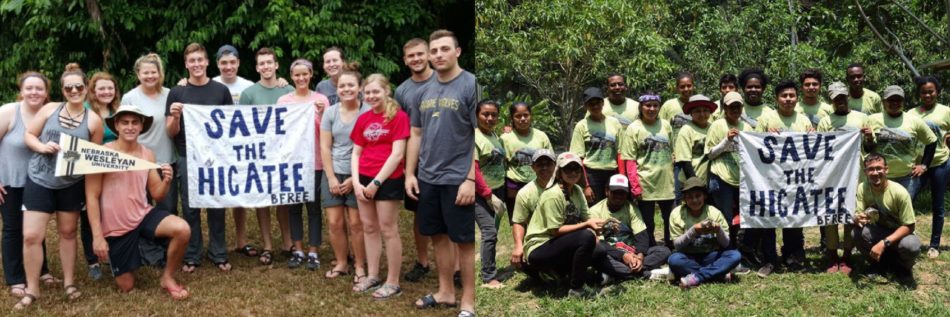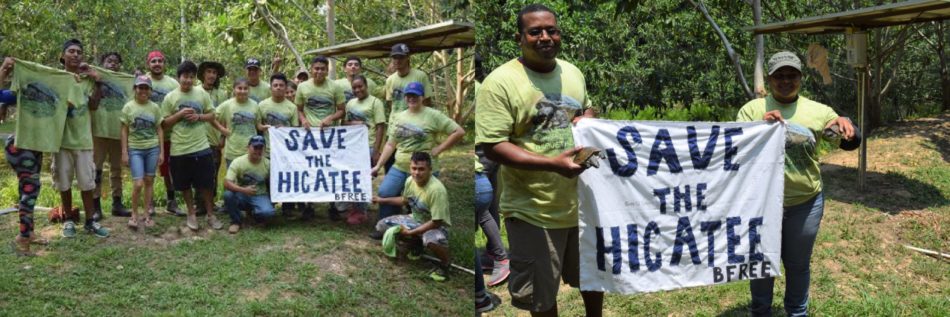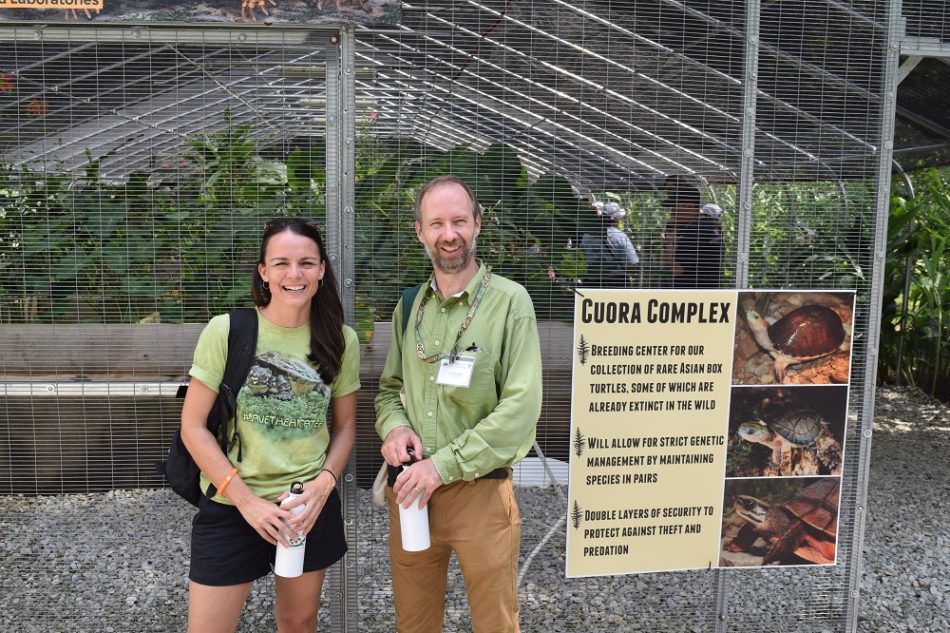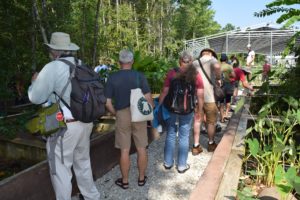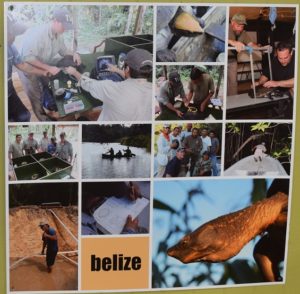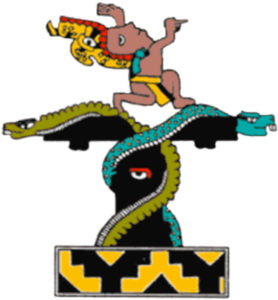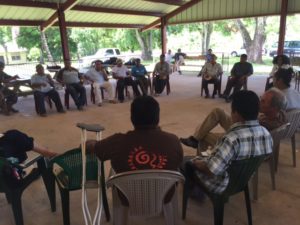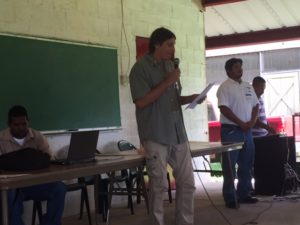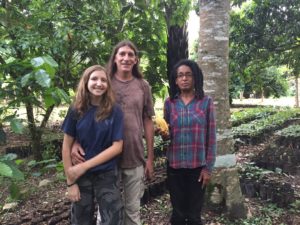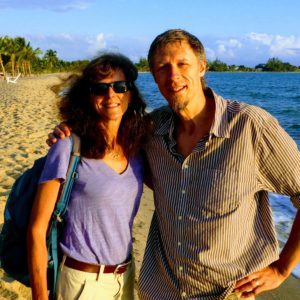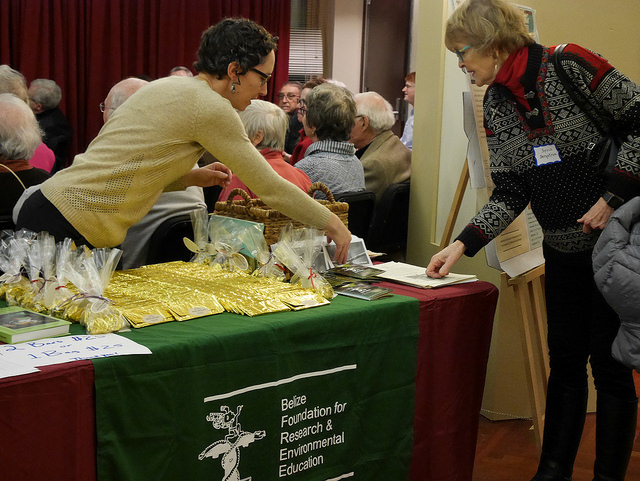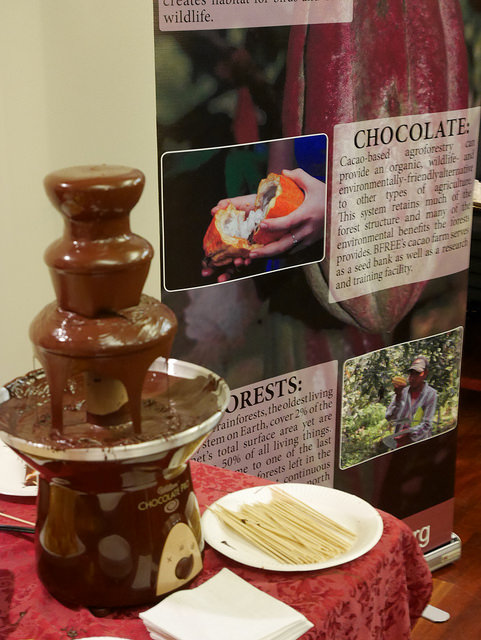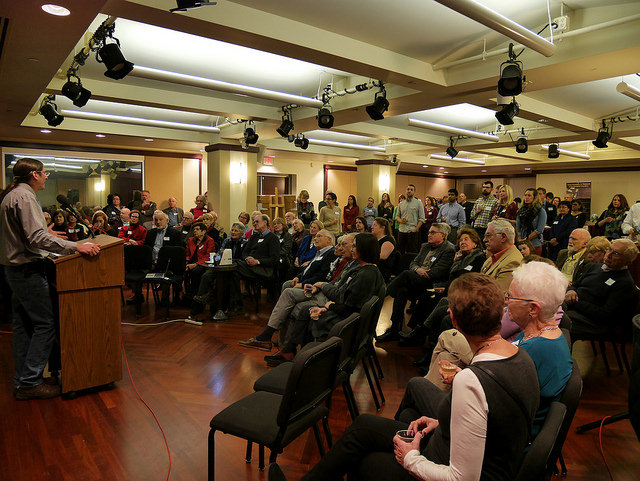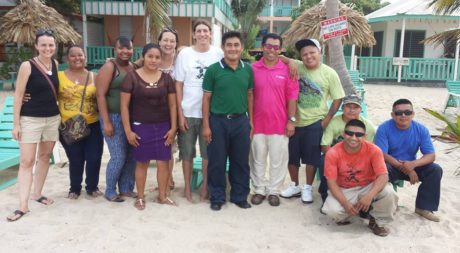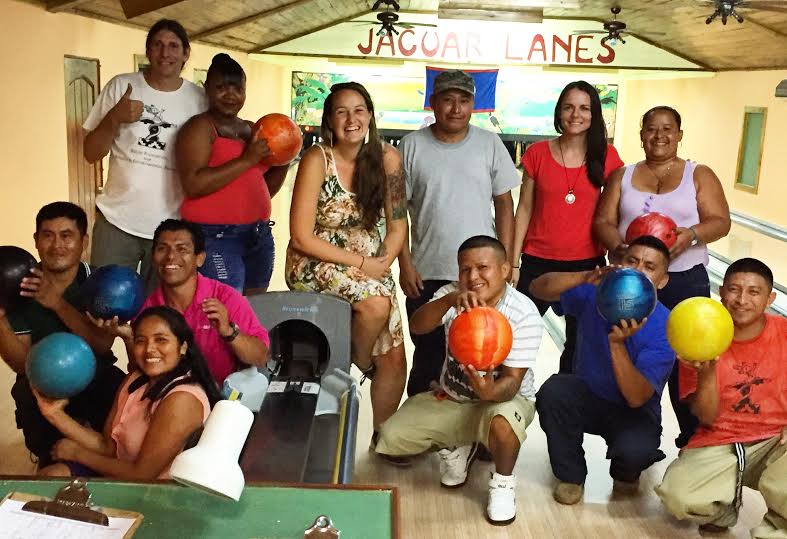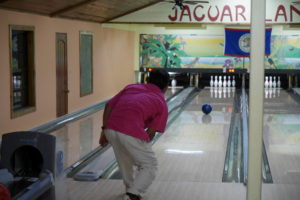Bi-annual Hicatee Health Assessments at BFREE
A team of veterinarians, zookeepers, researchers, and wildlife enthusiasts traveled to BFREE to perform health assessments on the turtles at the Hicatee Conservation and Research Center. Our fall health check occurs when females likely have eggs, which allows the team to perform ultrasounds and determine the reproductive status of the turtles.
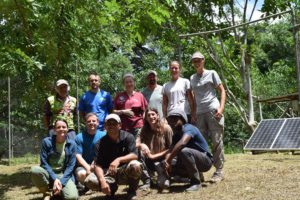
Health Assessment Team: Back row (L to R) Elliott Jacobson, Cayle Pearson, Isabelle Paquet-Durand, Rich Zerilli, Stephanie Verhulst, Nichole Bishop. Front row – Heather Barrett, Saul Bauer, Tom Pop, Jacob Marlin, and Jaren Serano (not pictured Eric Anderson and Gianni Martinez)
Day 1 Examinations were performed on the 2017 and 2018 hatchlings. Under the guidance of Dr. Isabelle Paquet-Durand, a veterinarian at Belize Wildlife and Referral Clinic (BWRC), and Dr. Elliott Jacobson, professor and veterinarian emeritus at University of Florida, each juvenile was weighed, measured and given a thorough exam which included careful assessment of warts and abscesses identified during previous examinations. Overall, turtles showed positive growth rates and reduction in skin problems.
The 2018 hatchlings were examined next – the veterinarians reviewed each of the 169 turtles which had already been weighed and measured on the 4th of September. Hatchlings also showed positive growth and good overall health.
Day 2 Adults and sub-adults were netted from Pond B in the morning and Pond A in the afternoon. Forty-four animals were measured and weighed and given general health examinations. All breeding sized females also underwent ultrasounds to determine the presence of follicles and eggs. One of the adult turtles eluded the nets, as did all the captive-born three and four-year-olds.
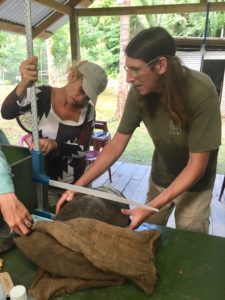
Gianni Martinez, teacher at St. Mary’s School in Belize City and author of “Herbert the Hickatee” joined the assessments on Day 2.
Day 3 – Because Dr. Jacobson was on-site to offer professional development training to HCRC staff, he presented a talk on “Zoological Medicine,” to the group. Other lectures he gave throughout the weekend included “Animal Husbandry,” and “Reptile Collecting and Field Methods.”
Data collected during these assessments will add to the ongoing data set being constructed by staff of the HCRC.
Additional photos of the Fall Health Check can be found here: Flickr page.

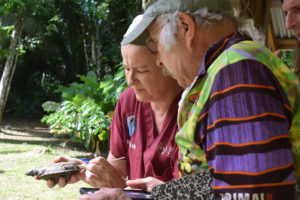
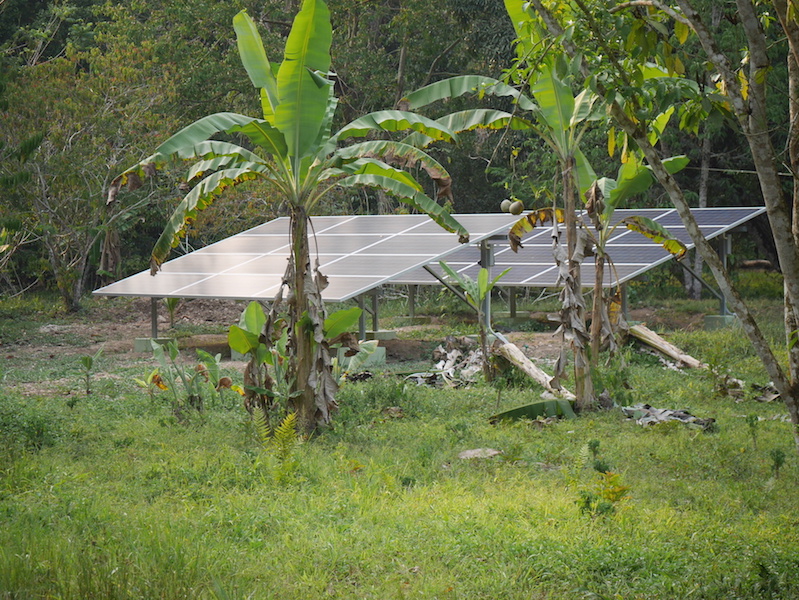
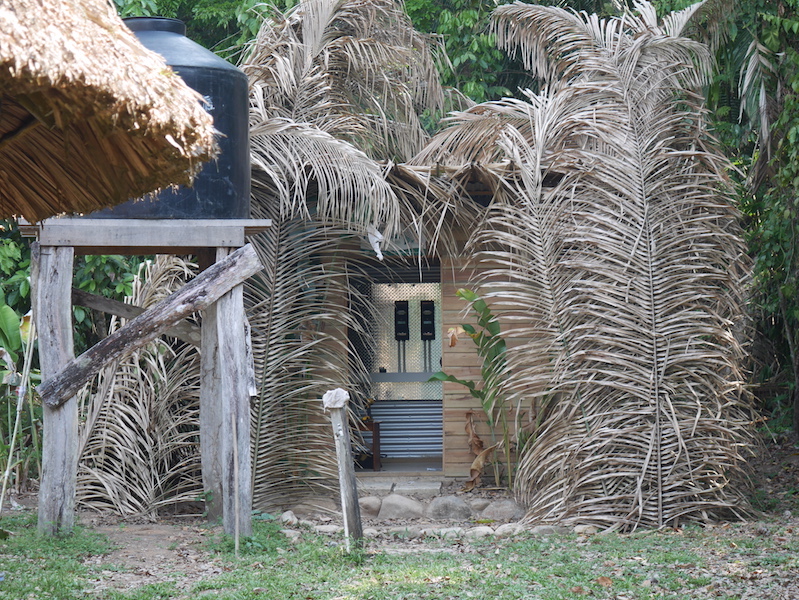
 Earlier last year, BFREE Program Coordinator, Tyler Sanville, stitched together the “SAVE THE HICATEE” banner while on a visit to the Field Station. She cut letters out of old bed sheets and sewed them on one by one. The banner was first signed by Natural Resource Management students from Independence Junior College.
Earlier last year, BFREE Program Coordinator, Tyler Sanville, stitched together the “SAVE THE HICATEE” banner while on a visit to the Field Station. She cut letters out of old bed sheets and sewed them on one by one. The banner was first signed by Natural Resource Management students from Independence Junior College. 